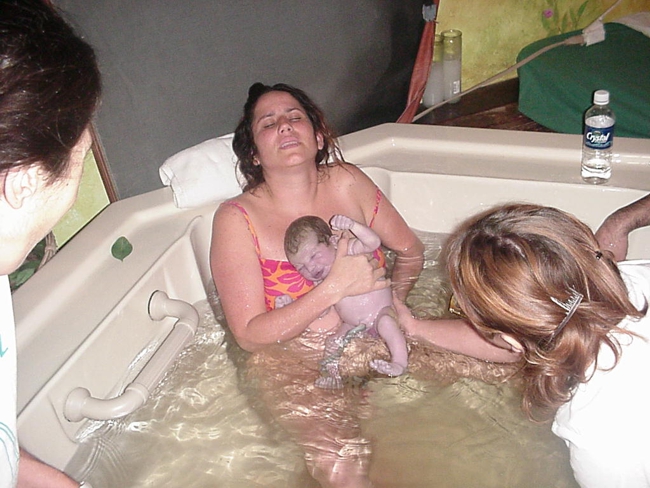The Benefits of Water Birth
Welcome to our comprehensive guide on the benefits of water birth. In this article, we will explore the advantages and potential positive impacts of water birth for both mothers and babies. Water birth is becoming an increasingly popular option for women during labor and delivery, and we aim to provide you with detailed information about its benefits.
Relief from Pain and Discomfort
One of the primary benefits of water birth is the relief it can provide from pain and discomfort during labor. The warm water helps to relax the mother’s muscles, promoting a sense of calmness and easing the intensity of contractions. The buoyancy of the water also helps to reduce pressure on the joints, making movement and positioning more comfortable.
Promotes Relaxation and Reduces Stress
Water birth creates a soothing environment that promotes relaxation and reduces stress for both the mother and the baby. The warm water mimics the amniotic fluid, providing a familiar and comforting sensation for the baby. This can help to facilitate a smoother transition from the womb to the outside world.
Enhances Blood Circulation
When a woman immerses herself in water during labor, it can enhance blood circulation. The warm water causes blood vessels to dilate, improving blood flow to the uterine muscles. This improved circulation can potentially lead to more efficient contractions and a shorter labor duration.
Reduces the Need for Medical Interventions
Water birth has been associated with a reduced need for medical interventions during labor. The relaxation and pain relief provided by water immersion can result in a decreased use of pain medications, such as epidurals. Additionally, water birth has been linked to a lower likelihood of episiotomies, vacuum or forceps-assisted deliveries, and cesarean sections.
Increases Sense of Control and Empowerment
Choosing water birth empowers women by giving them a greater sense of control over their birthing experience. The ability to move freely and find comfortable positions in the water allows mothers to actively participate in their labor and delivery. This increased sense of control can lead to a more positive and empowering birth experience.
Promotes Bonding and Attachment
Water birth can foster a deeper sense of bonding and attachment between the mother and the baby. The warm water provides a gentle and nurturing environment for the baby’s first moments of life outside the womb. The closeness between the mother and the baby during water birth enhances the emotional connection and promotes early bonding.

In conclusion, water birth offers numerous benefits for both mothers and babies. From pain relief and relaxation to reduced medical interventions and enhanced bonding, water birth can be a positive and empowering choice for many women. If you are considering a water birth, it is essential to consult with your healthcare provider and ensure that you meet the necessary criteria for a safe water birth experience. Remember, every birth is unique, and what matters most is the health and well-being of both the mother and the baby.
Frequently Asked Questions
1. What is water birth?
Water birth is a method of giving birth in a tub or pool of warm water. The mother remains in the water during labor and delivery.
2. Are there any benefits to having a water birth?
Yes, there are several benefits to water birth. It can provide pain relief, promote relaxation, reduce the need for medication, and create a gentle transition for the baby from the womb to the outside world.
3. Is water birth safe?
When performed under proper medical supervision, water birth is considered safe for both the mother and the baby. However, it is important to discuss your suitability for water birth with your healthcare provider.
4. Does water birth reduce the risk of tearing?
While there is no guarantee, water birth has been associated with a reduced risk of severe perineal tearing. The warm water can help relax the perineal muscles, making them more elastic during delivery.
5. Can I have pain relief during a water birth?
Yes, water birth itself provides natural pain relief. However, if needed, other pain relief options like gas and air or epidural can still be administered during labor in the water.
6. How does water birth affect the baby?
Water birth can have a calming effect on the baby. The warm water mimics the amniotic fluid, creating a familiar environment and reducing stress during the transition.
7. Can I have a water birth if I have a high-risk pregnancy?
It depends on the specific risks involved in your pregnancy. Women with certain medical conditions or complications may not be suitable candidates for water birth. Consult your healthcare provider to determine if it’s a safe option for you.
8. Is water birth available in all hospitals?
No, not all hospitals offer water birth as an option. You may need to research and find a birthing center or hospital that specializes in water births or has the necessary facilities.
9. Can I have a water birth if I’ve had a previous cesarean section?
It depends on the hospital’s policy and your circumstances. Some hospitals may not allow water birth after a previous cesarean section due to potential risks. Discuss with your healthcare provider to determine the best option for you.
10. Are there any disadvantages to water birth?
While water birth has many benefits, it may not be suitable for everyone. Some potential disadvantages include limited mobility, difficulty monitoring the baby’s heart rate, and the risk of infection if the water is not properly maintained. It’s important to weigh the pros and cons before making a decision.




